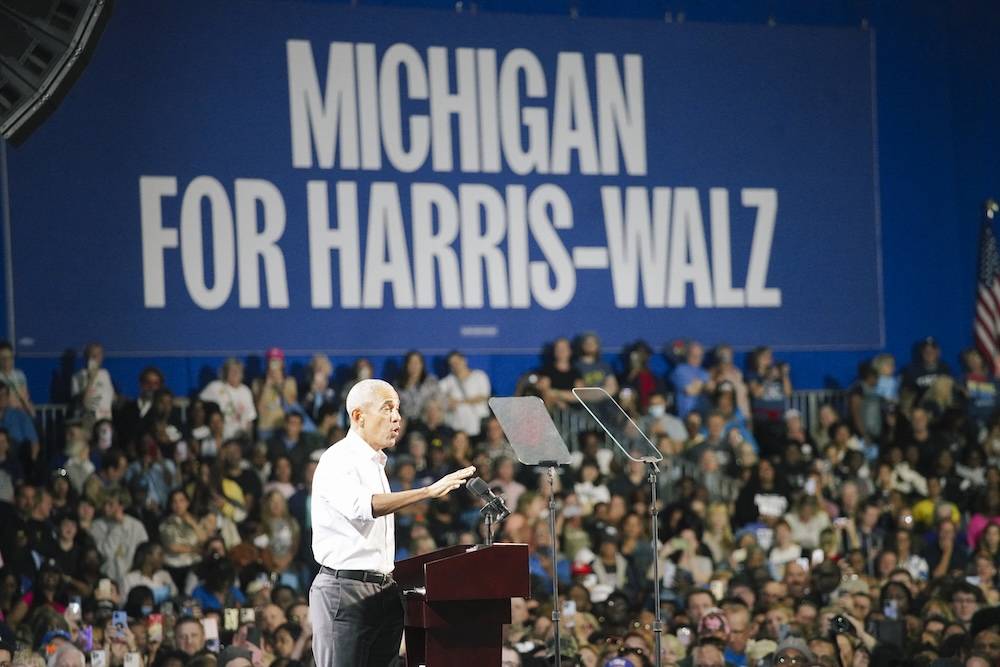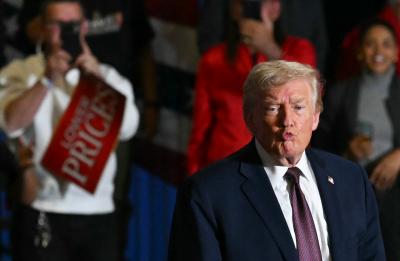With 11 days remaining until the U.S. presidential election, the race between Democratic candidate Kamala Harris and Republican Donald Trump is becoming increasingly tight, making it difficult to predict who will succeed Joe Biden on January 20. Many politicians and analysts agree that the November 5 election could be one of the most contested in U.S. history, given the intense political and cultural polarization dividing the nation.
This election comes after significant transformations within the Republican Party under Trump’s leadership, which has shifted toward a more radical stance, abandoning traditional conservatism. Meanwhile, the progressive wing of the Democratic Party, influenced by Bernie Sanders, has gained strength. With national polls showing a close contest between Harris and Trump, attention is now focused on a handful of swing states that will ultimately decide the outcome. These are the same states that handed Trump his 2016 victory over Hillary Clinton and secured Biden’s win in 2020. However, this year, Harris faces a significant challenge in winning these states.
Key Swing States and the Arab and Muslim Community
Seven swing states are crucial: Arizona, Georgia, Michigan, Pennsylvania, Wisconsin, Nevada, and North Carolina. These states have a significant number of progressive Democrats, as well as a notable Arab and Muslim community. In 2020, Biden secured 80% of the Muslim Democratic vote and strong support from the party’s progressives. However, this support began to erode even before Biden announced his withdrawal from the presidential race in July, primarily due to his pro-Israel stance during the war in Gaza.
This dissatisfaction became evident during the Democratic primaries, where tens of thousands of voters opted for “uncommitted” rather than endorsing Biden. Harris inherited this frustration after officially becoming the Democratic nominee at the August convention in Chicago, which was marked by protests against the Gaza war.
Harris's Attempts at Reassurance Fall Short
In an attempt to calm the protesters, Harris alternated between expressing support for Palestinian self-determination and distancing herself from Biden’s policies by saying, “I am not Joe Biden” during an interview with Fox News. However, her simultaneous affirmation of “Israel’s right to defend itself” failed to win over critics of Biden’s policy, which is seen as too lenient toward Israel’s destructive war in Gaza and its recent expansion into Lebanon.
Electoral Consequences of Biden's Policy
Could Harris be penalized for Biden’s Middle East policy? The numbers suggest that this is a real possibility. In 2020, Biden won several key swing states by only a few thousand votes, partly thanks to the support of Arab and Muslim voters in Georgia, Michigan, Pennsylvania, and Wisconsin. For example, Biden won Michigan by 154,000 votes, whereas Trump had carried the state in 2016 with a margin of less than 11,000 votes. Michigan has over 200,000 registered Muslim voters and 300,000 voters of Middle Eastern and North African descent.
In Georgia, where Biden won by just 11,779 votes, activists mobilized 12,000 voters to abstain from voting for Harris due to the Biden administration’s inaction on halting arms supplies to Israel and its failure to broker a lasting ceasefire in Gaza and the West Bank.
Biden’s Last-Minute Efforts
In a last-minute attempt to address these concerns, the Biden administration sent a message to Israel, demanding it provide adequate food supplies to Gaza or risk a reassessment of U.S. humanitarian commitments and arms deliveries. However, this initiative is unlikely to sway progressive, Arab, and Muslim voters. Some may even turn to Jill Stein, the Green Party candidate, in protest against the Democratic Party.
Trump’s Outreach to Arab and Muslim Voters
At the same time, Trump is intensifying efforts to attract Arab and Muslim voters, promising to work toward a solution for the Middle East if reelected. However, his record during his presidency—marked by abandoning the two-state solution, the “Deal of the Century,” and other pro-Israel actions—may hinder his chances with these voters.
Please post your comments on:
[email protected]
 Politics
Politics













